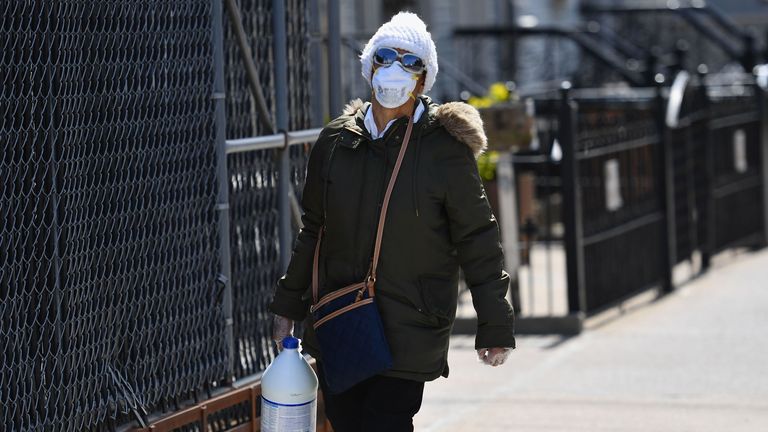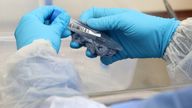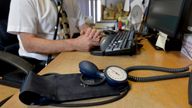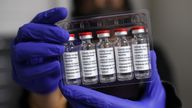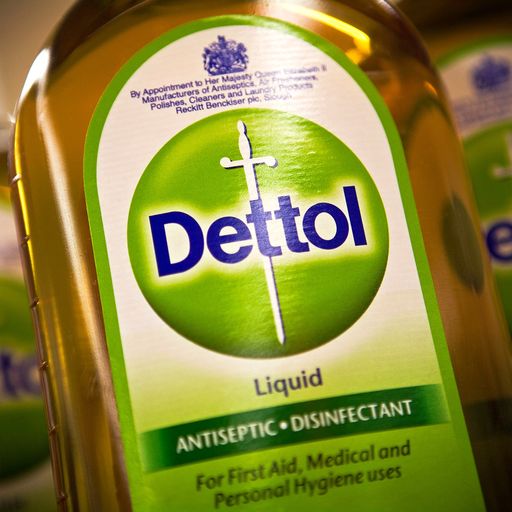Coronavirus: Americans drinking and inhaling bleach to try to prevent COVID-19 infections - study
Some 4% of those surveyed said they had drunk or gargled bleach solutions, and 18% used household cleaning products on their skin.
Monday 8 June 2020 07:41, UK
Americans trying to prevent COVID-19 infections have reported cleaning their food and themselves with disinfectant and bleach, with some even inhaling or drinking the household cleaning products, a study has found.
According to research from the US Centers for Disease Control and Prevention, nearly four in 10 people (39%) admitted to actions the health protection agency would consider dangerous.
The study took place in May shortly after President Donald Trump publicly asked whether injecting such products could treat COVID-19.
Of the 502 adults surveyed, 19% said they had put bleach on food, including fruit and vegetables, while 18% admitted using household cleaning and disinfectant products on their hands or skin.
Some 4% had drank or gargled bleach solutions, soapy water or disinfectants, 6% had inhaled vapours from household cleaners or disinfectants, and 10% said they had misted their body with a cleaning or disinfectant spray.
Health officials have cautioned explicitly against such behaviour.
The online poll analysed household cleaning habits during the coronavirus pandemic.
Overall, 60% of respondents (with an average age of 46) reported cleaning and disinfecting more often in the month before they completed the survey than they did in the months leading up to the pandemic.
A quarter reported at least one adverse health effect which they believed was linked to the use of cleaning products, such as the skin, eye and sinus irritation, dizziness, headaches, nausea or breathing problems.
Those who reported at least one high-risk act reported health problems twice as often as those who did not behave dangerously.
The majority of participants also fared poorly on knowledge of cleaning practices.
Researchers concluded: "Despite the knowledge gaps and high-risk practices identified in this survey, most respondents believed that they knew how to clean and disinfect their homes safely; thus, prevention messages should highlight identified gaps in knowledge about safe and effective practices and provide targeted information using innovative communication strategies regarding safe cleaning and disinfection."
:: Listen to Divided States on Apple podcasts, Google Podcasts, Spotify, and Spreaker
The researchers acknowledged several limitations to the findings, such as not knowing whether the participants were truly representative of the broader US population (despite efforts to weight them as such) or whether the adverse health effects were directly linked to the risky behaviour.
"Finally, responses were recorded at a single point in time and might not reflect ongoing shifts in public opinion or cleaning and disinfection practices by the public throughout the national COVID-19 response," they added.
In April, CDC reported an unusual hike in poison control centre calls over harmful exposures to household cleaning products such as bleach.
Mr Trump has come under fire from medical experts for suggesting further research and tests into whether injecting COVID-19 patients with disinfectant could cure them from coronavirus.
These comments prompted the maker of Dettol to warn against its product being ingested "under any circumstances"

